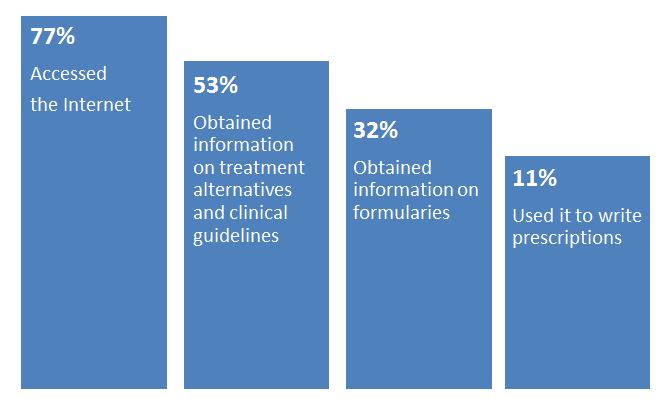Leveraging Information Technology in the 21st Century Workforce: Businesses look to make smart tech investments
Technology is now an inherent part of the business landscape. Businesses, both large and small, must be prepared to make viable investments in new devices, networks, experienced staff and system upgrades to stay competitive within their respective industries. However, when leveraged effectively, IT can grow your business, streamline your processes and improve the efficiency of your work force.
No matter what industry you are in, you should make smart investments in staff and resources to get up to speed in the new tech world. IT systems are complex and are often beyond the skill level of even the most seasoned business professional. However, these systems are becoming an increasingly important part of a business’ overall operations and profit streams. Business owners should hire IT staff members with the experience and know-how to organize your networks, identify new technologies that can improve efficiency and enhance your overall business operations through smart tech investments. Professionals who earned an online information technology degreeshould be equipped with the knowledge needed to manage a company’s IT needs and even lead an IT task force.
Now more than ever, industries are powered by technology. Take a look at how some of the economy’s top industries are leveraging IT.

medicinea doctor and a patient looking at MRI pictures
Doctors rely on information technology to ensure patients get quality treatment and care
Health care: When leveraged effectively, IT can have a big impact on the quality, safety and efficiency of health care delivery, personal health management and public health. However, relatively few health care providers have fully accepted IT advancements. Implementation of new IT systems in established health care settings is often hindered by the sheer size and complexity of the industry, which contributes to high costs and the need for significant resources, including time and staff, to integrate this new technology. Nevertheless, the potential exists for health care providers to capitalize on new IT to advance their systems of collecting, storing, retrieving and transferring information electronically. Some health care professionals are readily adapting to this new environment. According to the Center for Studying Health System Change, adoption of new IT varied by physician use:
Health care professionals currently utilize IT systems to streamline administrative process rather than for clinical functions. Modern health care facilities are beginning to leverage IT to correspond with patients across areas of care by using telemedicine as well as to advance clinical protocols.
Hospitality and tourism: Customer service is king in the hospitality industry, and hospitality professionals are looking for more effective ways of providing premium customer service and engaging guests in meaningful interactions. Through new advancements, IT is making this easier for hotels, restaurants and attractions. Among the new technology advancements that are propelling the industry toward a more streamlined and efficient process is the use of software as a service (SaaS). SaaS is a cloud computing service that provides hospitality managers with an easy-to-manage, off-site hotel management system. The SaaS offers a limited upfront investment in hardware, on-site support staff and technical training. IT tools are also allowing hotels to personalize a guest’s stay based on data points collected during the check-in process. New systems allow front desk staff and managers to be proactive in offering guests an experiential stay based on their preferences.
Education: From primary to post-secondary learning institutions, IT is being leveraged to improve pedagogy and academic outcomes in educational settings nationwide. From incorporating technology into the classroom to facilitate student engagement to using it as a method to make higher education more accessible through flexible delivery of online courses, technology is changing the way people learn. Technology as an advanced learning tool is raising the bar in classrooms across the country and is providing teachers with new means of presenting course material through computers and interactive assistance tools. However, school administrators must focus on tech training to ensure teachers and students are adequately using technology to their maximum benefit.
IT is causing a shift in industries across the economy. Early adapters are now seeing big results on their bottom line while late bloomers are starting to see the positive effects of IT on their business.
King University has a reputation for academic excellence that goes beyond the classroom. Our online degree programs position graduates for an exceptional career or continued educational opportunities. More than 80 percent of King graduate survey respondents indicated they received admission to their first choice of graduate programs. Make an investment in your future with an online degree from King University.
